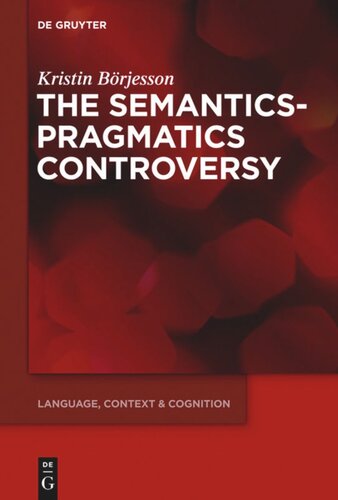

Most ebook files are in PDF format, so you can easily read them using various software such as Foxit Reader or directly on the Google Chrome browser.
Some ebook files are released by publishers in other formats such as .awz, .mobi, .epub, .fb2, etc. You may need to install specific software to read these formats on mobile/PC, such as Calibre.
Please read the tutorial at this link: https://ebookbell.com/faq
We offer FREE conversion to the popular formats you request; however, this may take some time. Therefore, right after payment, please email us, and we will try to provide the service as quickly as possible.
For some exceptional file formats or broken links (if any), please refrain from opening any disputes. Instead, email us first, and we will try to assist within a maximum of 6 hours.
EbookBell Team

4.7
86 reviewsCurrently, there is a great number of approaches to the semantics-pragmatics distinction on the market. This book is unique in that it offers a comprehensive overview, comparison and critical evaluation of these approaches. Taking as a starting point the notorious difficulty of differentiating so-called literal from non-literal (or figurative) meaning, it covers a wide range of the key current topics in semantics and pragmatics, e.g., the saying/meaning distinction, minimalism vs. contextualism, unarticulated constituents, indexicalism, (generalised) conversational implicatures, speech acts, levels of meaning in interpretation, the role of context in interpretation, the nature of lexical meaning. Notably, rather than taking a solely theoretical perspective, the book integrates psycho- and neurolinguistic perspectives, considering experimental results concerning the (differences in) processing of the various types of meaning covered. In terms of topics covered and perspectives taken, it is equally well suited for undergraduate as well as postgraduate students of linguistics and/or philosophy of language.